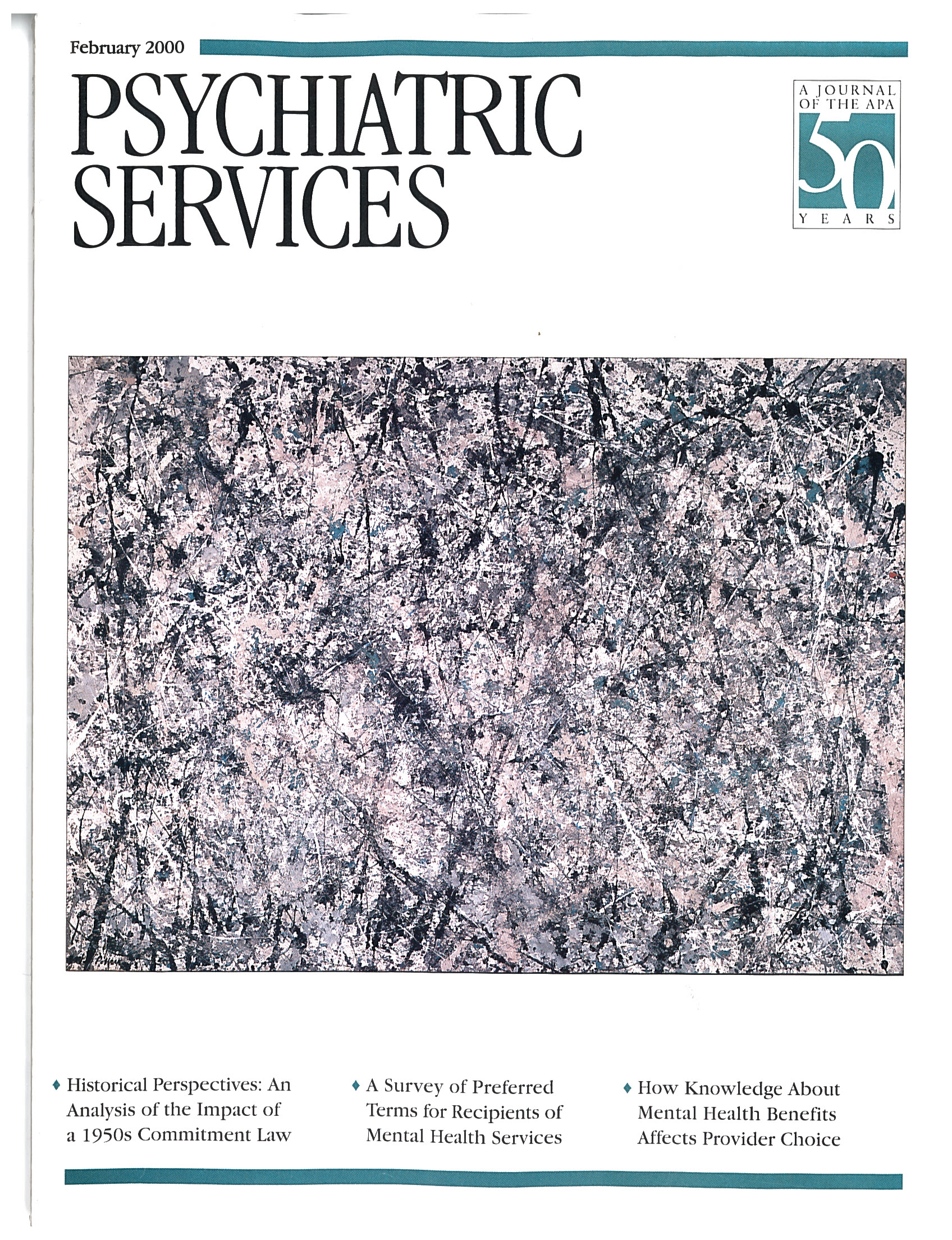Public Leadership in Child Psychiatry
To the Editor: The article by Dr. Soltys and his associates (1) in the December 1999 issue has important messages for the training of child and adolescent psychiatrists and for medical education as well. The two surveys reveal that not very many child psychiatrists are involved in state departments of mental health at the planning and administrative level, and that these departments would consider involving them more if they knew more about the uniqueness of public-sector child psychiatry and the intricacies of public administration. The authors recommend that child psychiatry training programs require more experience in community-based services and that trainees complete coursework in administration.
It is not difficult these days for child psychiatry training programs to include more experiences with "wrap- around" and other noninstitutional services for children and youth in the public sector because so many institutional settings have been closed or reduced in bed capacity. The challenge is to shift from teaching the psychopathology-focused perspective on a child and family to a perspective that emphasizes and builds on their strengths. The newer community-based services capitalize on strengths in child, family, and community and eschew any focus on ego deficits or institutional care options.
The greater challenge for the next century is to train physicians to become leaders, regardless of their specialty. Medical school admissions committees give some credit to applicants who have demonstrated leadership, such as serving as a debate team captain or organizing fundraising for a worthwhile cause. Such activities are deemed important, but never to the same degree as Medical College Admission Test scores or a high gradepoint average from a "competitive" college. Students have little time during the first three years of medical school to further develop their leadership skills. The fourth year may allow for a modest amount of mentoring in how to lead a team, but most learning is through role modeling with those further along in training.
Regardless of specialty, residency does little to foster the development of leadership skills. Some natural leaders can always be found in any program, but we do not ensure their further development or nurture similar development in the others. That is unfortunate, because many skills developed by physicians are also leadership skills: getting information and making sense of it, taking action and following through, building positive relationships, and inspiring others to join in a task. Skills that could be taught include managing conflict, negotiation, and flexibility. Psychiatry and child psychiatry training often includes the development of these skills for use in psychotherapy and teamwork, but they are not articulated or emphasized as a priority.
State departments of mental health need good physicians in positions of leadership, but they also have to be good leaders. As we look to the next generation of physicians, especially those choosing psychiatry and child psychiatry, we need to include training that prepares them to become effective leaders. Otherwise, public mental health systems, and public health systems as well, will succumb further to administrative decisions that are clinically insensitive, if not ignorant.
Dr. Parmelee is professor of psychiatry and pediatrics at Virginia Commonwealth University-Medical College of Virginia in Richmond.
1. Soltys SM, Wowra SA, Hodo GL: Child psychiatrists as leaders in public mental health systems: two surveys of state mental health departments. Psychiatric Services 50:1591-1595, 1999Link, Google Scholar



